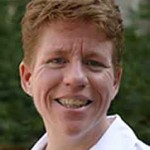Identity, diversity and women’s empowerment will be the theme of the 2013 Student Affairs Colloquium, hosted by the Division of Student Affairs.
“The purpose of the colloquium series is to deepen our understanding of the UW-Whitewater student experience,” Brent Bilodeau, assistant vice chancellor of the Division of Student Affairs, said.
This year’s colloquium will take place Jan. 24. There will be two events held in the University Center: a workshop from 8:30 to 10:30 a.m. in room 275 and a lecture with a question

and answer session in room 259. Both sessions will feature presentations from Dr. Kristen Renn, a higher education scholar.
Bilodeau said Renn’s research in higher education made her an “ideal choice” to present at the colloquium.
“We chose Dr. Renn because she’s nationally recognized as a higher education scholar, and she’s distinguished for her research and scholarship on college student identity development,” Bilodeau said.
Renn is currently a professor in the Michigan State University Higher, Adult and Life-Long Education program.
Her research includes focuses on college student identities and identity development in higher education, which is what the morning workshop, “Intersectionality & College Student Identities,” will focus on.
“The idea is to talk about what identity students might be bringing with them, both inside and outside classroom activities,” Renn said.
Renn’s interest in college students’ identities began when she was a student affairs administrator at Brown University.
Bilodeau said the morning session “will allow us to understand student identities more holistically. It focuses on the notion that all of us are made up of multiple identity characteristics.”
The afternoon session, “Women’s Higher Education in International Perspective,” will focus on research Renn has done on women in higher education. Coming from a small women-only institute herself, Mount Holyoke College in Massachusetts, Renn has traveled to 10 different countries to study women-only colleges and universities.
“I became very interested in looking around the world at women’s colleges and universities, starting with the question ‘in the 21st century, do we really need them?” Renn said.

According to Renn, there are fewer than 50 women-only colleges and universities in the U.S., while India has over 2,000 institutions. Renn said this dramatic difference is because in some places around the world, it is unaccepted or even illegal for young women to attend colleges or universities with males.
Although women account for the majority of undergraduate students, Renn feels it is important to study female students and women-only institutions because men and women are uneven when it comes to what they study. There are less female scientists, engineers and mathematicians than men, and not as many males in nursing, social work and education.
There are also advantages to attending all-female institutions. According to Renn, women’s universities and colleges typically offer more financial aid than co-educational schools. Renn also said they produce more female scientists, politicians, business leaders and graduate students.
Bilodeau said the Division of Student Affairs had a strong interest in diversity and international perspective as a focus of the colloquium.
“I think that Dr. Renn’s talk will help us explore connections between and across these identity characteristics,” Bilodeau said. “And most specifically, the workshop will really focus on today’s college students.”

